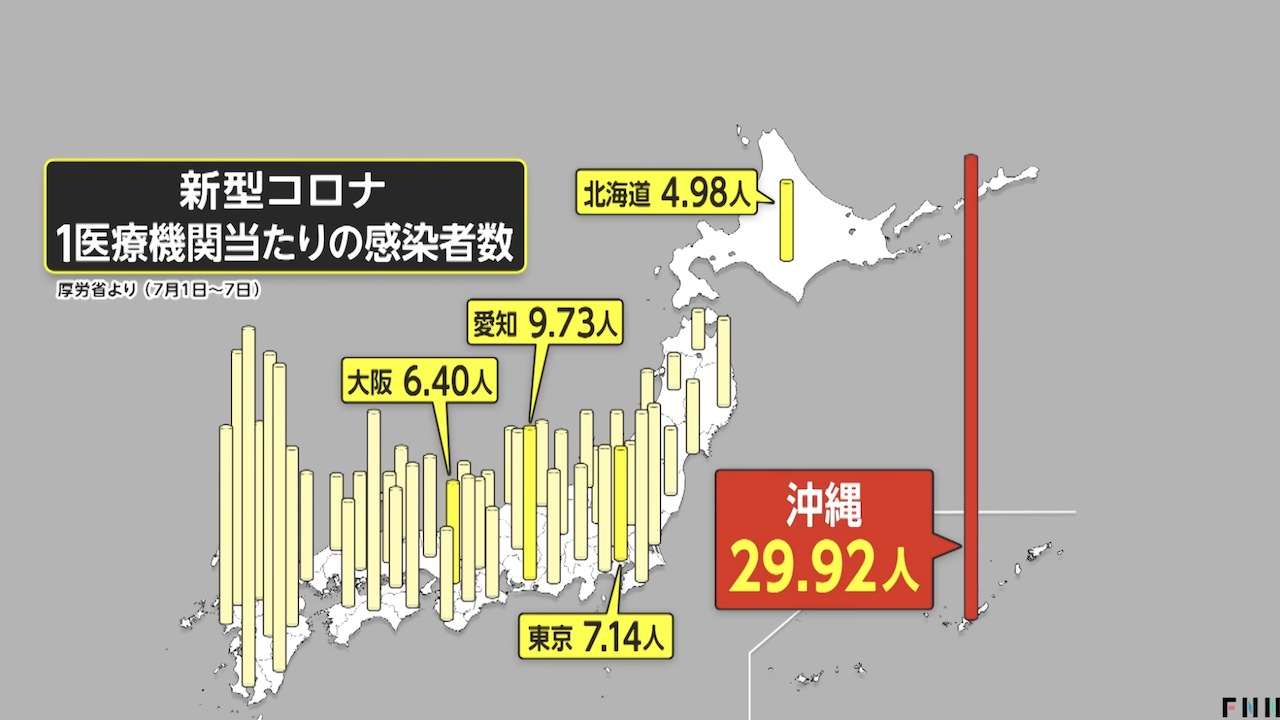TOKYO, Jul 17 (News On Japan) - A new variant, KP.3, different from those before, has emerged, and some say we are now in the 11th wave. The new variant is highly contagious, with symptoms primarily including throat pain and fever.
KP.3 has characteristics of being highly contagious and spreading more easily, even among those who have been vaccinated or previously infected. Symptoms primarily include throat pain and fever.
According to the Ministry of Health, Labor, and Welfare, the number of infections reported per medical institution from July 1 to 7 was 8.06 people, a 1.39 times increase from the previous week. Okinawa reported the highest number of cases, with 29.97 infections per institution, the most in the nation. In Okinawa, the KP.3 variant accounts for over 90% of infections.
When asked about the spread of KP.3, Yamaguchi said, “People are living cautiously but not overly fearful. It’s noticeable that despite the initial calm, there is a need for increased vigilance.”
The situation in Okinawa's medical institutions is critical. Since the end of the Golden Week holiday in May, patient numbers have steadily increased. In June, cases requiring hospitalization also rose. The lack of available beds has led to situations where emergency transport for fever patients, including COVID-19 cases, had to be refused.
This situation is impacting non-COVID patients as well. In this hospital footage, you can see the current state of the medical field. A patient with a high fever and suspected COVID-19 could not be admitted due to a lack of available beds. The hospital also faces a shortage of ambulances, leading to a significant increase in the use of doctor cars since June.
Doctors noted a change in public awareness toward COVID-19. They mentioned that there has been a decline in concern and preventive measures. The current period also presents challenges in distinguishing COVID-19 from heatstroke, as both cause similar symptoms such as fever, fatigue, headaches, and muscle pain.
As heatstroke cases increase, preventing the spread of the KP.3 variant becomes crucial. Handwashing remains an essential measure for infection prevention. Remember to wash your hands, especially after being in crowds or touching surfaces, to reduce the risk of infection. It's vital to adhere to these basic preventive measures.
Source: FNN















